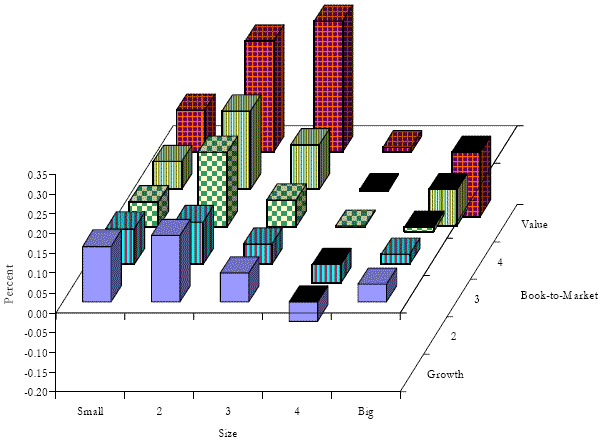Are hedge fund managers the best and brightest when it comes to stock picking and market timing? In their March 2007 paper entitled “How Smart are the Smart Guys? A Unique View from Hedge Fund Stock Holdings”, John Griffin and Jin Xu investigate whether hedge fund managers are better at picking stocks and investing styles than mutual fund managers. Using the stock holdings of 306 hedge fund companies from 1980 to 2004 as reported in quarterly SEC Form 13F equity filings, they conclude that:
- The median quarterly long equity portfolio turnover of hedge funds (102%) greatly exceeds that of mutual funds (63%).
- Hedge fund long equity portfolios are much less like a broad market index than are those of mutual funds. Compared to mutual funds, hedge funds lean toward stocks that are: smaller market capitalization, higher value (book-to-market), lower momentum (past returns), lower liquidity, less analyst coverage and higher volatility. Hedge funds are the most overweight medium-sized value stocks. (See the figure below.)
- There is some evidence that hedge fund trading leads mutual fund trading.
- Neither aggregate hedge fund long equity trades nor holding levels predict future returns for the stocks involved. Said differently, hedge fund long equity trading is on average uninformed and does not earn abnormal returns. Hedge funds do outperform mutual funds based on stock picking by a marginally significant 1.32% annually, but most of the outperformance occurs in 1999-2000.
- Hedge funds on average are no better than mutual funds at shifting among size, value and momentum styles. In fact, the average hedge fund style underperforms the average mutual fund style by an insignificant -0.96% per year.
- Stock picking and style timing performance is the same for hedge funds that generate most of their returns from either long or short positions. Therefore, hedging does not explain the unexceptional average long equity returns of hedge funds.
- There is no reliable evidence that hedge funds performing well one year continue to perform well the next, nor does the stock picking or market timing ability of a fund over its entire history predict its future returns.
The following figure, taken from the paper, compares the long equity weights of hedge funds and mutual funds based on market capitalization (size) and book-to-market (value). It shows that hedge funds have a relatively strong preference for small stocks, with pronounced preferences for small-capitalization value and medium-capitalization value. They are relatively averse to large-capitalization value.

The authors note that, since the SEC offers privacy for some filings, their sample of hedge fund long positions may be missing some related to acquisitions. They note also that their analyses do not consider fees and transaction costs, which would degrade average hedge fund performance relative to that of mutual funds.
In summary, hedge fund managers seem to be no better at long-equity investing than mutual fund managers; they do not outperform the market.